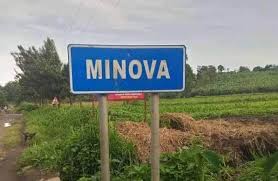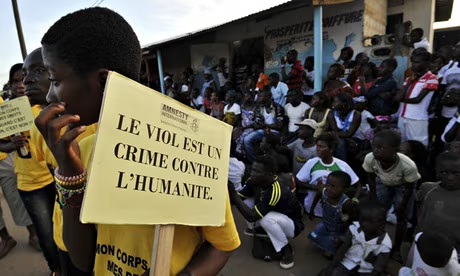Honourable Chairperson and Commissioners of the African Commission on Human and Peoples’ Rights,
We congratulate the Commission on the holding of its 69th Ordinary Session virtually. We commend the Commission for being innovative in the pursuit of the objectives for which it was set up, even in these challenging times brought about by the COVID-19 pandemic.
As an organization one of whose major activities is strategic human rights litigation, we are happy to see the progress that the Commission has made with consideration of some pending communications and the adoption of decisions on the merits. We have noted the commitment of the Commission to clear the backlog of pending communications and we commend the Commission for this.
We remain concerned with the problem of limited access of the general public, particularly civil society, to the communications mandate of the Commission. As of now, there is no publicly available list of communications pending before the Commission. Moreover, the Commission has in the past been known to ask certain litigants to not publish submissions they have made in communications pending before the African Commission, arguing that the proceedings are entirely confidential.
We note that this is due to the Commission’s interpretation of Article 59 (1) of the African Charter on Human and Peoples’ Rights which provides that “[a]ll measures taken within the provisions of the present Chapter shall remain confidential until the Assembly of Heads of State and Government shall otherwise decide.” Article 59 implies that all measures taken by the Commission within its communications procedure remain confidential until after consideration by the Assembly of Heads of State and Government. The Commission’s interpretation of this provision seems to be that “everything done or received” by the Commission is confidential. We submit, with the greatest respect, this could not have been the intention of the drafters of the Charter. We further submit that the drafters of the Charter intended by this provision to provide that any decisions, resolutions, and reports adopted by the Commission are not to be publicly available until after approval by the Assembly of Heads of State and Government.
The current interpretation of Article 59 by the Commission limits the ability of human rights organisations and experts from being able to make amicus curiae submissions to the Commission. In the absence of access to submissions and pleadings of the Parties, potential amicus curiae have no means of knowing which communications are pending before the Commission, and what human rights issues those communications entail.
This interpretation, we humbly suggest, may also violate the provisions of the African Charter’s provision on access to information.
Furthermore, this interpretation hinders litigants from sharing information about pending communications as part of advocacy strategies on a given issue on which they seek change. Civil society organisations have a legitimate interest in publicising cases, as this may be needed to sustain a campaign that may run for many years. This is especially important as the average communication at the Commission takes well over seven (7) years to finalise the merits decision.
To this end, we are urging the African Commission on Human and Peoples’ Rights to adopt a progressive interpretation of Article 59 in a way that allows for dissemination of information about the communications being considered by the Commission, and that removes the shroud of secrecy from the communications mandate of the Commission.
We also request that the Commission makes publicly available a list of communications pending before the Commission and, at the very least, a summary of the issues involved in each communication, to allow for potential amicus curiae to be able to effectively make submissions that can enrich the Commission’s considerations of these communications.
Honourable Chairperson and Commissioners, we thank you for your attention.







